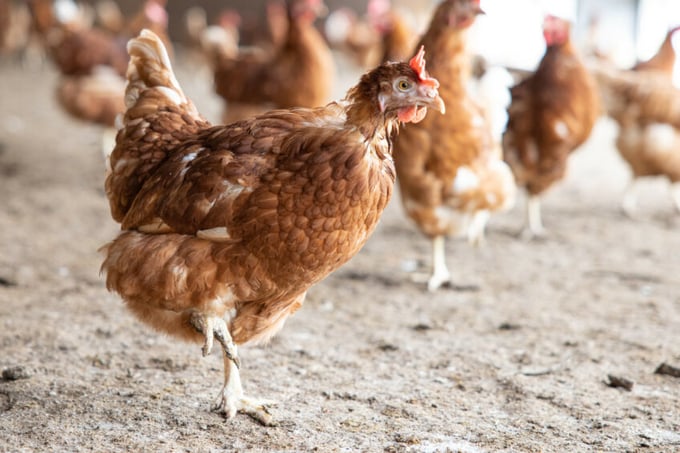May 24, 2025 | 16:22 GMT +7
May 24, 2025 | 16:22 GMT +7
Hotline: 0913.378.918
May 24, 2025 | 16:22 GMT +7
Hotline: 0913.378.918

Earlier this year, RSPCA assured paused its introduction of new laying hen standards following a wave of criticism from producers. Photo: Peter Roek
This follows the National Farmers’ Union’s ask for better engagement with egg producers, which prompted RSPCA Assured to form a producer group to gather feedback from laying hen producers on its new revised assurance standards.
Earlier this year, RSPCA assured paused its introduction of new laying hen standards following a wave of criticism from producers.
The National Farmers’ Union has already gathered feedback from members on the potential impact of new standards requiring the installation of verandas on barn units from January 2030 and the provision of natural daylight on all sites by January 2031, which is being fed back to RSPCA Assured.
However, the union said it was important that egg producers also took the opportunity to feed back on the impact of all the new and revised standards that RSPCA Assured intends to implement from 1 February, 2025.
The National Farmers’ Union has created a survey, which ran until 12 August, for members to respond. The survey covered 5 areas to reflect the different sections of the standards:
In April, RSPCA Assured interim chief operations officer Kelly Grellier said: “Our members are fundamental in helping us improve hen welfare. Therefore, ensuring we listen to them and provide proper support to help them meet the new standards is our top priority. To do this effectively, we have to be flexible. Extending the current pause until 2025 will give us more time to talk to more members and offer more support tailored to their specific needs.”
(PW)

(VAN) Alt Carbon has raised $12 million in a seed round as it plans to scale its carbon dioxide removal work in the South Asian nation.

(VAN) Attempts to bring down the price of the Japanese staple have had little effect amid a cost-of-living crisis.

(VAN) Fourth most important food crop in peril as Latin America and Caribbean suffer from slow-onset climate disaster.

(VAN) Shifting market dynamics and the noise around new legislation has propelled Trouw Nutrition’s research around early life nutrition in poultry. Today, it continues to be a key area of research.

(VAN) India is concerned about its food security and the livelihoods of its farmers if more US food imports are allowed.

(VAN) FAO's Director-General emphasises the need to work together to transform agrifood systems.

(VAN) Europe is facing its worst outbreak of foot-and-mouth since the start of the century.